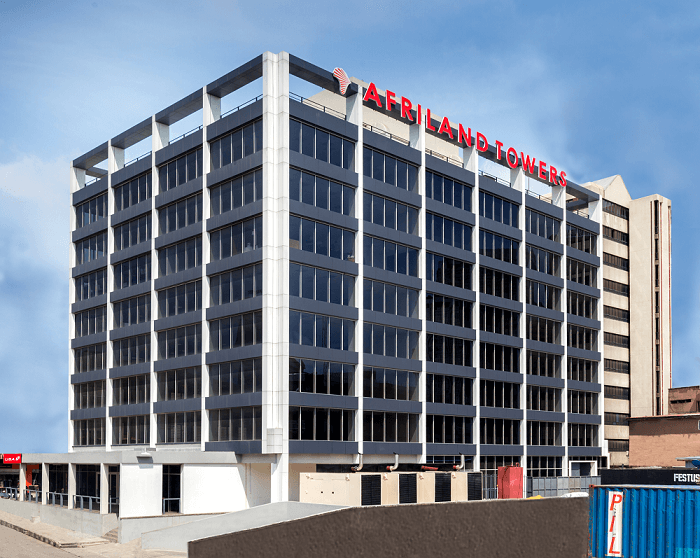The Tragic Fire at Afriland Towers: A Grim Toll of Loss and the Search for Answers
The afternoon of Tuesday, September 16, 2025, will forever be etched in the memory of Lagos as a day of tragedy. A fire outbreak at Afriland Towers, a six-story commercial building situated on the bustling Broad Street, Lagos Island, claimed the lives of at least ten individuals, leaving a trail of devastation and unanswered questions. The incident cast a pall over the city, serving as a stark reminder of the fragility of life and the ever-present dangers lurking within seemingly safe urban environments. The heart of the tragedy unfolded within the offices of United Capital, a prominent financial and investment services firm occupying the third and fourth floors of the tower. Six employees of the firm perished in the inferno, their promising futures tragically cut short.
The fire, believed to have originated in the building’s basement inverter room around 1:30 pm, rapidly spread, engulfing the structure in thick, acrid smoke. The inferno quickly trapped numerous occupants, triggering a frantic scramble for escape. As flames licked at the building’s facade, desperate individuals were witnessed attempting to escape through windows, a chilling testament to the rapidly deteriorating situation within. The sight of billowing smoke and desperate cries pierced the usual commercial hum of Broad Street, drawing the attention of horrified onlookers.
Emergency responders, including teams from the Federal Fire Service and the Lagos State Fire and Rescue Service, raced to the scene, battling the raging inferno and tirelessly working to rescue trapped individuals. Their efforts, hampered by the intensity of the blaze and the building’s structure, resulted in the rescue of at least nine individuals. While five of the rescued were successfully revived, four remained unconscious, their conditions a grave concern for medical personnel.
The initial reports of the fire, while alarming, did not fully convey the extent of the tragedy that was unfolding within the tower’s walls. In the hours and days following the incident, the grim reality of the situation began to emerge. The Federal Inland Revenue Service, also housed within the building, confirmed the loss of four of their staff members. This devastating news was compounded by the subsequent confirmation from United Capital, which announced the passing of six of their colleagues.
The confirmation of these ten deaths transformed the Afriland Towers fire from a contained incident into a major tragedy. It underscored the precarious nature of workplace safety and raised questions about the adequacy of fire prevention and emergency response measures within commercial buildings in the city. The loss of life, particularly amongst young professionals at the start of their careers, resonated deeply within the Lagos business community and beyond.
The immediate aftermath of the fire saw an outpouring of grief and condolences. United Capital released a heartfelt statement expressing their profound sorrow at the loss of their colleagues and their commitment to supporting the bereaved families. They pledged to hold a memorial service to honor the lives lost and provide ongoing assistance to those affected by the tragedy. The company’s message reflected the shared sense of loss and the collective effort to grapple with the emotional toll of the event.
The investigation into the cause of the fire remains ongoing. Although preliminary reports point to an inverter explosion as the likely trigger, authorities are diligently working to determine the precise sequence of events that led to the devastating blaze. This investigation is crucial not only to provide closure to the grieving families but also to identify any systemic failures that contributed to the tragedy. The findings will be essential in informing future fire safety regulations and prevention strategies, aiming to prevent similar incidents from occurring in the future.
Beyond the immediate cause of the fire, broader questions are being raised regarding fire safety standards and emergency preparedness in commercial buildings across Lagos. Were adequate fire suppression systems in place? Were evacuation procedures effectively communicated and practiced? Were building codes and inspections sufficiently rigorous? These are just some of the critical inquiries that must be addressed to ensure that the lessons learned from this tragedy lead to meaningful change and a safer environment for all.
The Afriland Towers fire serves as a sombre reminder of the importance of prioritizing fire safety and emergency preparedness. It highlights the need for regular inspections, robust fire suppression systems, clearly defined evacuation plans, and ongoing training for occupants of commercial buildings. Furthermore, it underscores the vital role of prompt and effective emergency response services in mitigating the impact of such incidents.
The healing process for the families, friends, and colleagues of the victims will be long and arduous. The emotional scars left by this tragedy will undoubtedly linger. Yet, amidst the grief and sorrow, there is a flicker of hope. The collective response to this tragedy – the outpouring of support, the commitment to investigation, and the determination to learn from this devastating event – suggests a shared resolve to create a safer future.
The Afriland Towers fire is a tragedy that has deeply impacted Lagos. While the immediate focus is on supporting those affected and investigating the cause of the fire, the long-term impact of this event should be a renewed commitment to fire safety and emergency preparedness. By learning from this tragedy, the city can work to prevent similar incidents from occurring in the future, ensuring that such a devastating loss of life never happens again.


